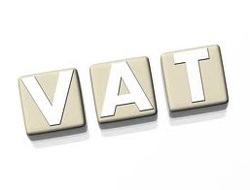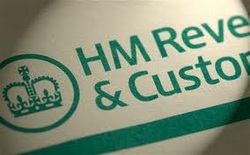|
To simplify accounting and tax reporting for the smallest businesses, from 6 April 2013 small businesses can choose to calculate profits/losses on the basis of the cash received and expenses paid out. This is known as the cash basis, and it ignores debts owed by the business and amounts owing to the business, until those amounts are paid. The normal accounting method is known as the accruals basis.
The cash basis will only be available to businesses which operate as sole-traders or partnerships, and whose turnover is under the VAT registration threshold (£79,000 from 1 April 2013). Some other businesses will be barred from using the cash basis and these include: - All companies and LLPs; - Farmers using the herd basis; - Any business using profit averaging over several tax years; - Businesses in a mineral extraction trade; and - Lloyd’s underwriters. Once a business is using the cash basis it can carry on doing so until its annual turnover is twice the VAT registration threshold (£158,000 from April 2013). Although apparently simple, the cash basis will have some disadvantages: - The deduction for loan interest paid will be limited to £500 per year; and - Losses can only be carried forward to set against future profits, whereas under the accruals basis losses can be carried back in the first four years of the trade and set off against the trader’s other income. In addition any unincorporated business, whether or not they are using the cash basis, will be able to use flat rate expenses to replace the calculation of actual costs incurred in these categories of expenses from 6 April 2013: - Motoring costs (mileage at 45p per mile); - Use of home for business purposes (based on number of hours used per month); and - Private use of part of commercial premises, such as a public house (based on number of occupants who are business owners or their immediate family) As these flat rates are completely optional, and will vary in effect in each business, we need to discuss if the flat rates will be suitable.
28 Comments
Businesses that are behind with their VAT returns have until 28 February to take advantage of HMRC's latest campaign, launched in January  The taxman has been looking into allegations the company wrongly charged VAT on children's clothing which is usually exempt, dating back as far as 2006 Read more:  HMRC have rules regarding what constitues proof of expenditure including VAT that you can reclaim. The proof required for purchases over £250 are more strict than those for purchases under £250. For purchases above £250 the VAT invoice must show:
 Sole Trader Vs Limited Company Corporation tax is currently 20%, for profits under £300,000 and 24% for profits above £1,500,000. Therefore conversion of your business into a limited company is more beneficial than before. You will enjoy a marginal rate tax saving of 9% from 1 April 2011, compared to 8% previously. This is compared to running your business under self assessment where Income Tax is 20% and Class 4 National Insurance is 9% for profits up to £42,475, profits up to £150,000 will be subject to 40% Income Tax and 2% National Insurance. Profits over £150,000 will be taxed at 50%. There are other factors to consider before incorporation its best to get in touch with us first. Annual Investment Allowance Where a business currently purchases plant and machinery, the first £25,000 of the expenditure qualifies for 100% tax relief in the year of the expenditure. VAT Flat Rate Scheme If you are mainly working for commercial customers it may suit your circumstances to register for VAT under Flat Rate Scheme voluntarily, even if your turnover is below the new VAT turnover threshold of £77,000 per annum. This is on the basis that you do not have much input VAT to reclaim (i.e. service companies). The scheme allows you to charge 20% to your customers, but only pay a smaller percentage of the gross turnover to HMRC. For example a computer consultant with a turnover of £50,000 would charge his customer 20% VAT and therefore receive £60,000, the additional £10,000 would be paid to HMRC, however under the Flat Rate Scheme only 14.5% of the gross turnover needs to be paid i.e. £60,000 x 14.5% = £8,700. Therefore a VAT saving of £1,300, which is taxable. You will also enjoy a 1% discount during the first 12 months from date of VAT registration under the Flat Rate. N.B - each industry has its own specific flat rate percentage. If you fail to plan your planning to fail, this approach will help when it comes to tax planning without doubt.
1) PLAN YOUR TAX FROM THE BEGINNING One of the reasons many small businesses fail is cashflow or the lack of it, if you put aside a provision for tax from the start, its easy to estimate your profits and transfer your tax provision on a monthly basis into a separate bank account, at the end of the year once your actual liability is calculated you may even have some funds left over! 2) KEEP AN EYE ON YOUR TURNOVER The current VAT registration threshold is £73,000 based on a rolling 12 months, you need to register if you exceed this or expect to exceed it in the next 30 days, however, if you can demonstrate to HMRC your turnover in the following year will be below this amount you may be able to apply for exemption from registering. 3) PLAN AHEAD The decisions you make at the beginning and during the year can have tax implications, you need to be thinking about the structure of the share ownership, remuneration, entity i.e sole trader, limited company or LLP Its important to discuss your business discussions with your accountant as he/she may be able to advise you in the right direction or point out something you may not have considered. Small businesses have been reminded of changes to the UK's VAT systems. HM Revenue & Customs (HMRC) has issued a notice urging such enterprises to be prepared for the changes, which mean that from April 1st this year all VAT returns must be filed online. Those yet to have made the necessary adjustments to cope with online filing could be tempted to seek the assistance of a specialist accountancy service to ensure their financial affairs are in order. "Previously, only newly-registered businesses and those with turnovers of more than £100,000 had to submit their VAT online, as well as pay electronically. Anyone else could send HMRC a paper VAT return, but this will no longer be an option," the department explained. Business owners have also been urged to register for online filing in plenty of time ahead of the changeover to avoid the risk of incurring any late filing penalties. _
Are you already filing your VAT returns online? If not, then you need to prepare to switch to online filing as this will be compulsory for all VAT registered businesses from 1 April 2012. Don’t leave this task until the last minute as it can take a few weeks to receive the unique user ID you need from the Tax Office. You will also have to create a password and set up a system to pay the VAT you owe.You will no longer be able to pay the VAT due by cheque. You have to pay by electronic means. This includes using a direct debit, bank-transfer such as CHAPS or BACS, a personalised bank giro payment slip paid in at a bank (these need to be ordered in advance), or a debit card or credit card over the internet.The good news is that Tax Office has now instructed its bank to accept tax payments by the faster payment service. This means the tax or VAT due will take less than a day to clear from your account to the Taxman’s bank account. Before relying on this shorter timescale, check whether your bank account is set-up to use the faster payment service and if any money limits apply. Many bank accounts can only pay out up to £10,000 by electronic payments in one day. If your VAT bill exceeds that cap you may have to spread the payment over several days, or talk to your bank about other transfer methods.We can file your VAT electronically on your behalf once you have completed the necessary authority forms from HMRC. We will also require all your VAT information in good time before the due date for the VAT return, so we can calculate the VAT due and tell you what to pay to ensure the return and payment is received by HMRC before the deadline. _Within the UK VAT system there are situations that can happen where businesses will have to pay VAT to HMRC before they have been paid by their customer. This can be an disaster for cash flow within a business. This is where bad debt relief can really help a business out. Where the business has accounted for the output VAT and paid it over to HMRC, but not yet received payment from the customer, it can claim a reimbursement for the outstanding amount. Small businesses really ought to be utilising this as they could be out of pocket for no good reason.
There are of course some conditions for bad debt relief to be able to apply to a business and to make it as easy as possible for you we have listed these conditions below.
Making the claim is not a huge task and it is in many respects relatively straight forward. On the VAT return form you need to enter the amount you wish to claim back into Box number 4 (as input tax) as if it were a purchase for the business. It should be noted that any business wishing to make a claim must keep the relevant records for at least 4 years from the date of the claim to convey the above points to HMRC. It is important to ensure you claim it as a bad debt and record it as such within your accounting records rather than issue a credit note. A credit note is only acceptable if there is a genuine change in the consideration of the supply. In addition, you want to notify that it is a bad debt as opposed to reversing the service/ commodity. After a claim has been made the business should ensure that it keeps a track of any of these debtors if they pay up as the output tax would then need to be paid over accordingly. When considering the amount of tax you pay i.e basic rate tax payer higher rate etc do you factor in VAT, after all its another form of tax that non registered individuals have to pay which cannot be recovered. Therefore can it be avoided, interesting article on yahoo news, take a look
|
AuthorLicenced Accountant in Brighton Archives
May 2020
Categories
All
|

 RSS Feed
RSS Feed
